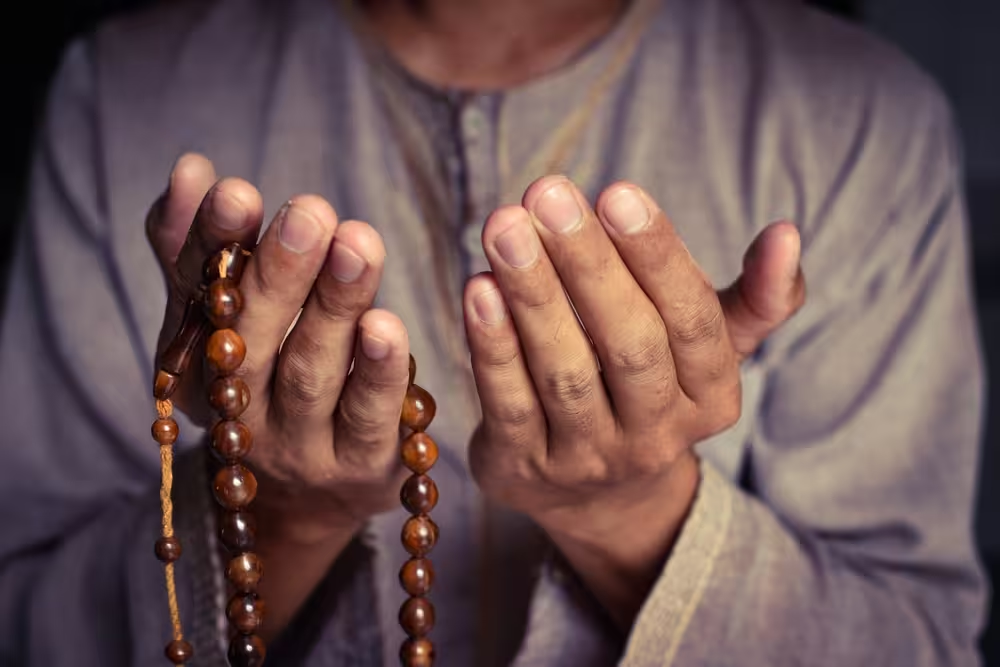
One of the most common questions Muslims ask is: Can dua (supplication) change destiny? This topic is deeply rooted in the relationship between dua, qadar (destiny), and Allah’s will. Scholars and hadith provide clear insights into how dua plays a role in altering or lightening destiny by the permission of Allah.
Can Dua Change Destiny?
Yes — by Allah’s permission, dua can change destiny. The Prophet Muhammad ﷺ said:
«لَا يَرُدُّ الْقَدَرَ إِلَّا الدُّعَاءُ»
“Nothing repels destiny except supplication.”
(Narrated by al-Albani, al-Targhib wal-Tarhib, Hadith 1638, Hasan)
This means that while everything is written in Allah’s eternal knowledge, dua interacts with qadar in unique ways. Sometimes it prevents harm, sometimes it lightens trials, and sometimes it continues to “wrestle” with destiny until the Day of Judgment.
Another hadith expands on this:
«لَا يُغْنِي حَذَرٌ مِنْ قَدَرٍ، وَالدُّعَاءُ يَنْفَعُ مِمَّا نَزَلَ وَمِمَّا لَمْ يَنْزِلْ، وَإِنَّ الْبَلَاءَ لَيَنْزِلُ، فَيَتَلَقَّاهُ الدُّعَاءُ، فَيَعْتَلِجَانِ إِلَى يَوْمِ الْقِيَامَةِ»
“Caution will not protect against destiny. Dua is beneficial for what has descended and what has not yet descended. Calamity comes down, and dua meets it, and they wrestle until the Day of Resurrection.”
(Reported by al-Albani, Sahih al-Jami, Hadith 7739, Hasan)
So, dua doesn’t contradict destiny — rather, it is one of the means Allah has placed within destiny itself.
The Three Positions of Dua Against Trials
Scholars explain that dua interacts with calamities in three possible ways:
- Dua is stronger than the trial
- The trial is completely lifted.
- This happens when a believer makes dua with sincerity, humility, and all conditions of acceptance.
- The Prophet ﷺ said:
«ما مِنْ رجلٍ يَدْعو اللهَ بدَعوةٍ ليس فيها إثمٌ ولا قطيعةُ رَحِمٍ إلَّا أعْطاهُ اللهُ بها إحْدى ثَلاثٍ…»
“No man makes a supplication to Allah in which there is no sin or severing of family ties except that Allah grants him one of three: either his supplication is answered quickly, or it is stored for him, or a harm is averted from him.”
(Reported by al-Albani, Sharh al-Tahawiyya, Hadith 462, Sahih)
- Dua is weaker than the trial
- The trial occurs, but dua may reduce its severity.
- Dua and trial are equal
- They wrestle in the heavens until one overcomes the other, by Allah’s will.
Etiquettes and Conditions for Accepted Dua
For dua to be effective, certain etiquettes and conditions should be observed:
- Sincerity: Allah says:
﴿فَادْعُوا اللَّهَ مُخْلِصِينَ لَهُ الدِّينَ وَلَوْ كَرِهَ الْكَافِرُونَ﴾
“So call upon Allah, making your religion sincerely His, even though the disbelievers dislike it.” (Quran 40:14) - Repentance & Istighfar: Constantly seek forgiveness, as sins can block dua.
- Humility & Khushu‘: Call upon Allah with a heart full of need.
- Praise and Salawat: Begin and end dua by praising Allah and sending blessings upon the Prophet ﷺ.
- Presence of Heart: Focus completely on Allah while making dua.
- Lower the voice: Make dua softly, with humility.
- Persistence: Repeat and insist in dua, often saying “Ya Rabb, Ya Rabb.”
- Certainty of Response: Believe firmly that Allah will answer.
- Avoid Haram: Consuming unlawful wealth, food, or clothing blocks acceptance. The Prophet ﷺ mentioned the traveler who raises his hands in dua while his food, drink, and clothing are haram, and concluded: “How can such a prayer be answered?” (Muslim, Hadith 1015, Sahih).
Why Dua is Greater Than Just Accepting Destiny
Some scholars said dua is even better than remaining passive with destiny, because dua itself is an act of worship. The Prophet ﷺ said:
«الدُّعَاءُ مُخُّ الْعِبَادَةِ»
“Dua is the essence of worship.”
(Reported by al-Albani, Ahkam al-Jana’iz, Hadith 247, Sahih)
Prophets themselves frequently made dua, and believers are encouraged to follow their example. Allah loves when His servant turns to Him, asks Him, and humbles himself in need.
Final Thoughts
Dua is not just about asking for worldly needs — it is a profound connection with Allah, capable of changing destiny by His permission. It strengthens faith, relieves the heart, and brings believers closer to their Creator.
👉 If you’d like to deepen your understanding of dua and Quran, consider joining our one-on-one online Quran classes. Our teachers guide you step-by-step in recitation, tafsir, and supplications so you can strengthen your relationship with Allah.
FAQs about Dua in Islam
Does dua really change destiny in Islam?
Yes. The Prophet Muhammad ﷺ said:
«لَا يَرُدُّ الْقَدَرَ إِلَّا الدُّعَاءُ»
“Nothing repels destiny except supplication.” (al-Albani, al-Targhib wal-Tarhib, Hadith 1638, Hasan)
This means that while destiny is in Allah’s knowledge, He allows dua to alter or lighten it by His will.
When is the best time to make dua?
The Prophet ﷺ taught us that certain times are more likely for dua to be accepted, such as:
- During the last third of the night
- On Fridays, especially the last hour before Maghrib
- Between the adhan and iqamah
- While fasting and at the time of breaking the fast
- In sujood (prostration) during prayer
Can dua prevent calamities before they happen?
Yes. The Prophet ﷺ said:
«الدعاءُ ينفعُ مما نزلَ ومما لم ينزلْ»
“Dua benefits against what has descended and what has not yet descended.” (al-Albani, Sahih al-Jami, Hadith 7739, Hasan)
This shows dua can stop harm before it reaches a person, by Allah’s permission.
Why are some duas not answered immediately?
Allah always answers dua in one of three ways:
- He grants it quickly.
- He saves it for the Hereafter as a greater reward.
- He averts harm of equal measure instead.
So no dua goes “wasted” — it is always beneficial.
What stops dua from being accepted?
Some common reasons include:
- Consuming haram wealth, food, or clothing
- Making dua without sincerity
- Asking for sinful or harmful things
- Losing patience and saying “I made dua but nothing happened”
Should I make dua even if everything is already written?
Yes! Scholars explain that dua itself is part of destiny. Just as you take medicine when sick (even though your health is already written), you make dua as part of Allah’s decree and a cause for good.
